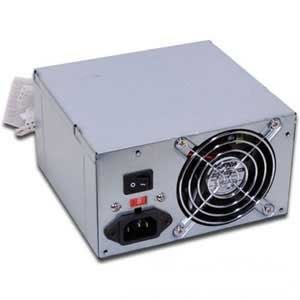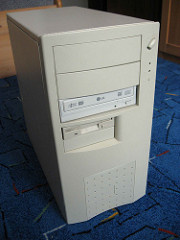Ask the expert: How to revive an old PC

Sunday is a day for tackling those odd jobs you just haven't had time to do over the last week. Like fixing annoying PC problems or figuring out what the internet is made of. Fortunately, our resident technical expert Adam Oxford doesn't believe in weekends, so he's on hand to help out whatever day of the week it is.
Beeep Beeep BEEEP

My PC is crashing and I'd be very grateful for some help.
It often freezes and the only option is a manual reboot. This used to happen quite often soon after boot-up, but recently it's begun happening after it's been working fine for an hour or more. On reboot it may then crash a number of times before successfully booting up and then working for a reasonable time.
Sometimes on reboot it refuses to boot up and instead makes a BEEEEEP BEEP BEEP BEEP sound. Looking this up I think this means "no graphics card" or "video card error".
I don't have much experience diagnosing problems so walking me through what to do would be greatly appreciated.
Vanilla Bear
PCG: I'm currently putting together a troubleshooting feature for the mag with a special section called 'It's probably your PSU'. Because most of the time, it probably is.
The biggest gaming news, reviews and hardware deals
Keep up to date with the most important stories and the best deals, as picked by the PC Gamer team.
To me, this sounds very much like the power supply to your graphics card is inconsistent. You could test to see if it's the graphics card that's faulty by swapping it for an identical card you know works well, but I'm guessing you don't have a spare lying around.
My money's on the PSU, though, because faulty GPUs tend to simply not work or throw up video artefacts on the screen before failing like this. It could be because your PSU isn't powerful enough to run your card, or it could be that it's become damaged over time.
In the short term, try swapping the connectors that plug directly into the card if you can – this might tell you that a particular rail isn't working well – or putting the graphics card in a different PCI-E slot to see if there's enough power coming through the motherboard. Either way, it's likely the long term fix is a new, more powerful PSU.
The perfect sound set-up?

Currently I have a Logitech Z-5500 speakers for playing when the neighbours are out. Also two sets of headphones; Platronics wireless ones forget the model and Creative HS-1200.
What I want in my headset though is for them to be wireless and when I turn them on they mute my seakers. Also I want the Z-5500 control box to be the charging station and wireless transmitter for the headpones.
I think Logitech is more than capable of making such a device and even one where you could buy just the control box with added wireless transmitting charge station, without having to replace all the speakers.
Better yet, if there is a system out there that does those things already point me to it.
Friction
PCG: I'm not aware of any system that combines headphones and speakers in one, and to be honest I wouldn't hold out hope of anyone making one either. It's a good idea, but possibly a bit too niche. Besides, the Z-5500 already has a headphone jack in its control unit that mutes the speakers when cans are plugged in – that's probably as good as it gets.
Reviving an old PC

So I have a relative that has an old PC that he wanted to get working. It's been sitting in the closet for nearly 3 years before I pulled it out last week to try and fix it up. I concluded that it stopped working due to a faulty power supply (when you shake the PSU you hear something moving around). I bought a new power supply and also a new 1GB stick of RAM, as he had removed the RAM in that computer to give to another machine. Once all the parts are in place, I pressed the power button and nothing happened. I have a suspicion that it might be a dead CMOS battery, but I'm not sure how I could figure this out. What's the easiest way to test the CMOS battery? Also, is there an easy way to test the new PSU and RAM?
Coded One
PCG: A dead CMOS battery doesn't usually stop your machine from booting. It can in rare cases, but normally it just means the clock will reset to sometime in the mid '90s every time you shut the PC down. If everything is cabled in correctly the bad news is that this reads like a dead motherboard to me.
I'd double check the first part of that sentence before consigning it to trash, though. Check every cable and component is correctly plugged in by taking it out and reseating it - especially the CPU and memory. You might also want to have a look at the front panel connectors that hook the power switch up to the motherboard. Your problem might be quite simply that this has worked its way loose.
Got a question for Adam? If you have a technical problem you need solved or are just curious about PCs in general, leave a comment below or email him directly here .

